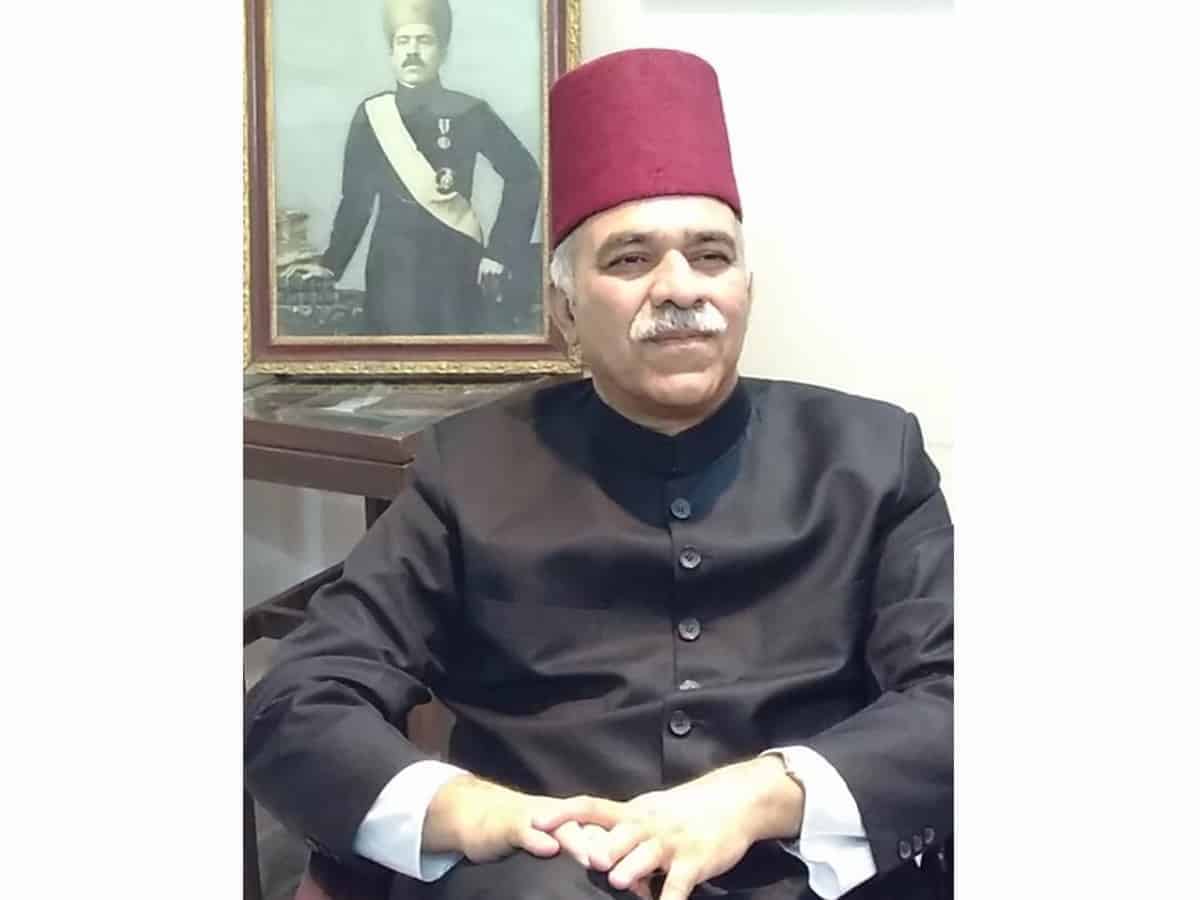Hyderabad: Nawab Najaf Ali Khan, the grandson of Hyderabad’s seventh and last ruling Nizam Mir Osman Ali Khan, has claimed that Prince Mukarram Jah used an “invalid” certificate recognising him as the eighth Nizam in the UK High Court in the Nizam Funds case.
Khan told IANS on Monday that based on this certificate, the UK court last year ordered that 35 million pounds (Rs 333 crore) cash pot be divided between the Indian government and Mukarram Jah and his brother Muffakham Jah.
“By submitting the invalid certificate in a court and that too abroad, the Indian Constitution has been violated and we were thus deprived of our legitimate share in the funds,” said Khan, who is also president of Nizam Family Welfare Association and one of over 100 heirs to the seventh Nizam’s estate.
He said he would use all legal remedies against those who provided the invalid certificate to the Administrator of the Nizam’s estate as they are liable to be prosecuted for forgery, misrepresentation, cheating, fraud, misappropriation of fund, providing false evidence, provision of FEMA and even charges of sedition.
Arguing that the certificate dated February 27, 1967 issued by the Centre recognising Prince Mukkarram Jah alias Barkat Ali Khan as the eighth Nizam of Hyderabad became ‘non est’ after the passing of 26th Amendment Act, 1971, he pointed out that Article 363A under which the recognition earlier granted to rulers of erstwhile princely states or their successors was terminated.
“Prince Mukkarram Jah who claimed to be VIII Nizam in succession to the VII Nizam on the basis of certificate of recognition issued by the Government of India is no more the ruler of Hyderabad and he is like any ordinary citizen therefore the Personal Law of Inheritance shall be applicable for the matter of inheritance,” he contended.
Khan was a party to the proceedings in Nizam Funds case in the UK High Court on behalf of other heirs of the seventh Nizam and claiming their inheritance as per Law of Inheritance, that is the Shariat Law.
The certificate was provided to the Administrator of the Estate of Nizam VII by the Solicitors of Prince Mukkaram Jah, represented by his former wife and GPA Esra Birgen Jah, his son Azmath Jah and all the parties including his brother Muffakham Jah had given their consent because of which the remaining heirs of the seventh Nizam suffered a huge loss, he said.
After learning that the “invalid” certificate was used, he gave a representation to the Centre in August seeking clarification.
“Since there was no reply from the government, I filed a petition in Delhi court which directed the government on October 23 to consider the representation,” Khan said.
Last year, the UK court had ruled in favour of India, the titular eighth Nizam of Hyderabad and his brother. They had earlier reached a confidential agreement in a decades-old legal dispute with Pakistan over funds belonging to the seventh Nizam at the time of Partition in 1947.
Khan, on behalf of 116 heirs of the seventh Nizam, had sought a review of the case but the court dismissed his petition.
The dispute revolved around 1,007,940 pounds and nine shillings transferred in 1948 from the then ruler of then Hyderabad State to the High Commissioner of the newly-formed state of Pakistan in Britain.
That amount deposited in NatWest Bank had since grown in a London bank account into 35 million pounds.
India raised an objection to the transfer, saying the Nizam was not an independent ruler and prevailed upon the bank to freeze the account. Since then, the matter was hanging fire.
Mir Osman Ali Khan, who was the world’s richest man of his times, died in 1967. The efforts to solve the dispute during his lifetime failed as Pakistan never came forward to help unlock the funds.
However in 2013, Pakistan waived its sovereign immunity by issuing a claim for the fund. This opened the way for the case but the court rejected Pakistan’s claim.

